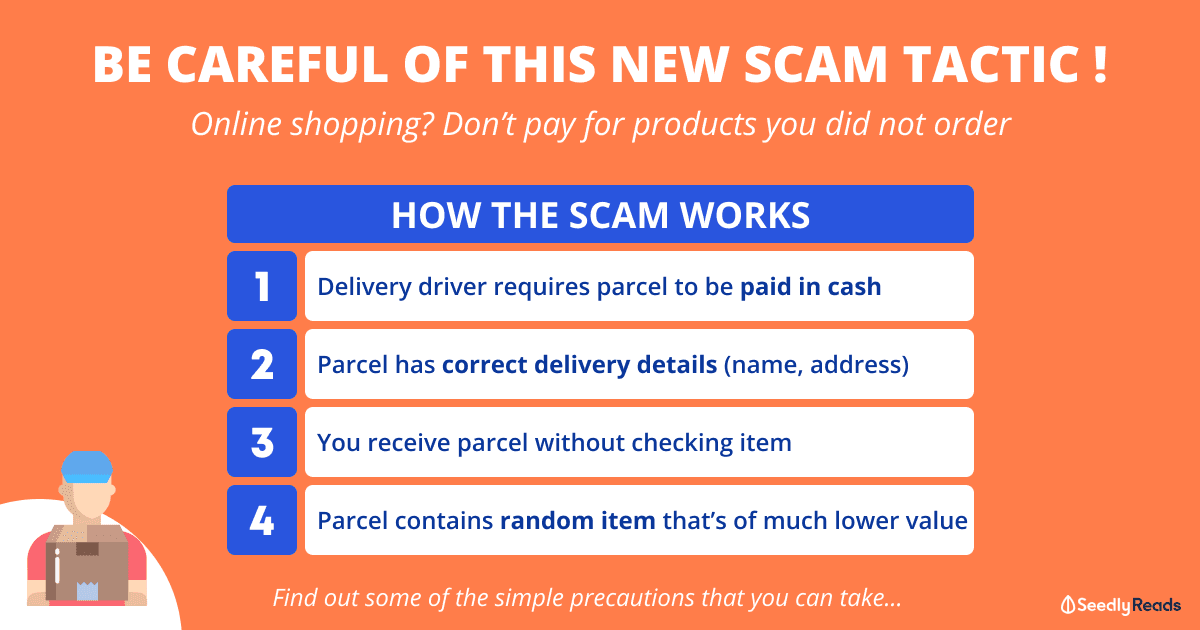Being stuck at home during COVID-19 meant one thing.
It means feeling like Christmas all year long.
Well, given the number of parcels we are receiving, that is…

With the ease of online shopping, it is easy to lose track of the items that we’ve ordered.
Leeching on this negligence, there has been a surge in a new tactic that lures unsuspecting individuals to pay for cash on delivery parcels that do not belong to them.
While this is not officially listed as a scam by the National Crime Prevention Council (NCPC), it is a tactic that is starting to become more common.
Which is why we hope to raise awareness on this issue so that none of us will not fall into this trap.
And for those found to be guilty, the offence of cheating is punishable under Section 420 of the Penal Code, and carries a jail term of up to 10 years and a fine.
New Tactic Used for Cash on Delivery Parcels: How Does It Work?

According to some of the sources online, here are the common steps used for this tactic.
1. Delivery company informs about upcoming parcel delivery
2. Delivery personnel mentions that parcel requires Cash on Delivery (COD), which means that parcel has to be paid in cash upon delivery
3. Individual or family member assists to receive parcel without checking what item it is, and pays cash to the delivery personnel
4. Realises that item is not something that has been ordered, and parcel received usually contains a random item that is of a much lower value
How Does This Happen?

As we progress as a cashless society, there is a higher probability of having our personal data made available online.
Given how our data is slowly becoming more accessible, it might be the reason that it could be unfortunately selected randomly for the item to be delivered to.
For this to happen, it is speculated that:
1. Fake seller creates a new seller account
2. Address is obtained somewhere by fake seller
3. Fake seller sends random item to address and requests for COD
Why Is This Method Gaining Popularity?

Given the surge in online shopping, it’s easy to be complacent when it comes to receiving parcels.
Which makes us easier targets for such a tactic.
In addition, consumers tend to have more trust for cash on delivery, and it is uncommon for parcels to be opened and checked on the spot during delivery.
Also, payment by cash meant a lower possibility of tracing to the seller’s bank account and details.
Simple Precautions To Take

In order to reduce the risk of falling victim to the COD fraud, here are some steps you can take:
- Never opt for the payment method of your items to be COD, unless required
- If you have something that is by COD, inform your family members what it is and when to expect them
- Always check on the item if you are unclear, and refuse the parcel if possible
- If you’ve already paid for the parcel, do try to email support of the courier company
Advertisement
